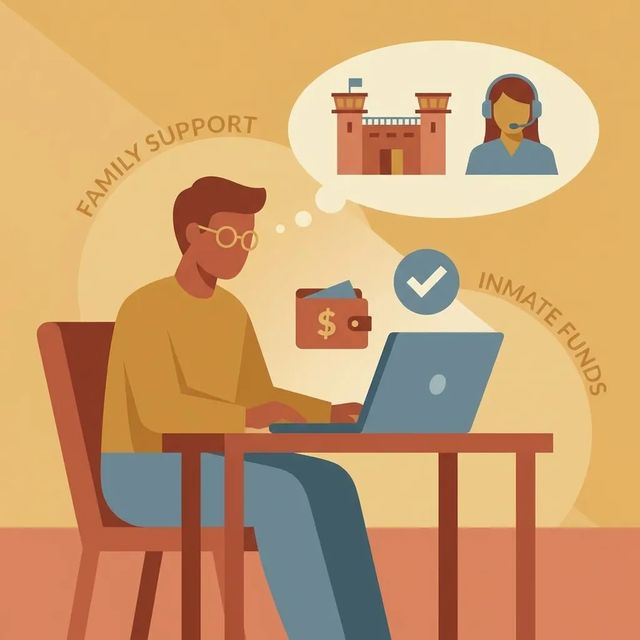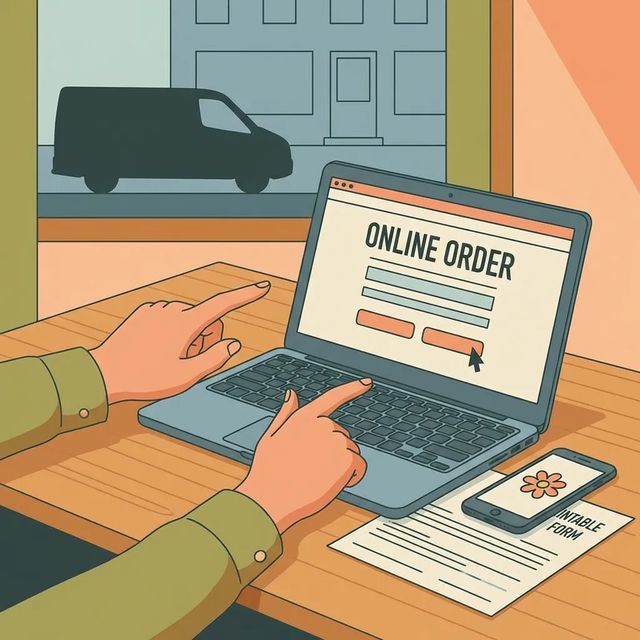Jones County Adult Detention Center, MS
Explore
Find an Inmate at Jones County Adult Detention Center, MS
Search for a loved one and send messages and photos in minutes.

Guides for This Facility

How to Contact an Inmate at Jones County Adult Detention Center, MS (MS)
Need to reach someone at the Jones County Adult Detention Facility in Ellisville? Start with the right phone number and confirm current rules directly with staff.
Read Guide
How to Add Money to an Inmate's Canteen Account at Jones County Adult Detention Center
Want to put money on someone's canteen account at Jones County Adult Detention Center? The county routes all deposits through AccessCorrections, so starting with the vendor is your fastest option.
Read Guide
Pat's Florist & Gifts — Laurel florist serving Jones County families
Need to send something thoughtful in the Laurel area—maybe on short notice? Pat's Florist & Gifts offers same-day delivery and online ordering, with all arrangements made in-house.
Read GuideAt a Glance
Visitation
- For questions and visitation schedules call the ADF or JDF phone numbers provided by the facility.
- Visitation is a privilege and can be suspended or revoked if visitors break the rules.
- Many facilities require visitors to complete a visitation application or be listed on an approved visitor list before visits are allowed.
Communication
- The Adult Detention Facility is at 5178 U.S. Hwy. 11 in Ellisville and lists ADF phone 601-649-7502 and JDF phone 601-649-7500.
- The facility provides phone numbers to call for questions and visiting schedules.
- Victim advocates are available to provide support and can be contacted by phone for assistance.
Sending Money
- Jones County Adult Detention Center directs people to the AccessCorrections website to add funds to inmates' canteen accounts.
- Access Corrections provides online options to send money, post bail, and make parole/probation or court-ordered payments for inmates.
- Deposited funds go into the inmate's commissary or trust account for purchases like commissary items, phone time, and approved services.
Based on official sources and community feedback. Learn how we verify
Topic Overviews
Visitation
Visiting at Jones County Adult Detention Center starts with a phone call. The facility directs visitors to contact the ADF or JDF phone numbers for the current visitation schedule and any special requirements. Confirm hours before you travel. Visitation is a privilege that can be suspended or revoked if rules are broken, so follow posted rules and staff instructions carefully. Many facilities require a visitor application or approved visitor list, so start early and return any forms exactly as instructed. When you arrive, expect to register in the visitation processing area, show a valid government-issued photo ID, sign a visitor log, and possibly go through a search or scanner. Some facilities also offer on-site kiosk visits or at-home video visits through third-party services. Ask what Jones County uses when you call.
Read full guideCommunication
Need help with visiting schedules or other questions? Jones County Adult Detention Center publishes phone contacts you can call. The Adult Detention Facility is at 5178 U.S. Hwy. 11 in Ellisville, MS. ADF phone: 601-649-7502. JDF phone: 601-649-7500. Communication with someone in custody typically includes phone calls, video visits, and electronic messaging, but the exact options depend on the facility. You'll likely need to register with the approved communications service and add funds before calls, video visits, or messages will work. Phone and video time may need to be scheduled and can be limited by facility operations. Calls and messages are often monitored or recorded. For victim-related help or to report information, victim advocates are available by phone, and the facility accepts confidential anonymous tips by phone and email.
Read full guideSending Money
Jones County Adult Detention Center directs family and friends to the AccessCorrections website to add money to an inmate's canteen account. The facility doesn't take deposits in-house. Access Corrections handles more than commissary deposits. You can also post bail, make parole or probation payments, or handle other court-ordered payments through the same portal. On most online payment portals, you'll pick a payment method, enter the inmate's name and ID, and select Jones County Adult Detention Center so the funds go to the right place. How fast money posts depends on how you pay. Automated online payments usually post fastest, while mailed or some retail deposits can take longer. Funds go into the inmate's commissary or trust account for approved uses like commissary items and phone time.
Read full guideCommon Questions
Showing 6 of 9How do I find the visiting hours for Jones County Adult Detention Center?
Call the ADF or JDF phone numbers provided by the facility to get the current visiting hours and any special instructions before you travel.
VisitationWhat ID and documents do I need to visit an inmate at Jones County Adult Detention Center?
Bring a valid government-issued photo ID. You should also be ready to show you are approved to visit (for example, on an approved visitor list), and expect to register on arrival and possibly be searched or scanned.
VisitationCan my visits be suspended or revoked at Jones County Adult Detention Center?
Yes. Visitation is a privilege, and staff can suspend or revoke visits if rules are violated.
VisitationHow do I get visiting hours or schedule a visit at Jones County Adult Detention Center?
Call the listed facility numbers for visiting schedules and questions: ADF at 601-649-7502 or JDF at 601-649-7500. You may also need to register with the facility’s approved communications service and follow any scheduling steps required.
CommunicationCan I call or video chat with an inmate at Jones County Adult Detention Center?
Many facilities use phone calls, video visits, or electronic messaging, but the options and setup depend on the facility. Expect to register, possibly add funds, and understand that communications are often monitored or recorded.
CommunicationWho can help victims or how do I submit a tip related to someone at Jones County Adult Detention Center?
Victim advocates are available by phone to provide support and referrals. You can also submit confidential anonymous tips to the facility by phone or email.
CommunicationMore Guides
Ready to Connect?
Search for your loved one to start communicating today
Did You Know?
Jones County Adult Detention Center is in Ellisville, Mississippi, on Highway 11. The site includes both the Adult Detention Facility (ADF) and the Juvenile Detention Facility (JDF).
This guide is based on feedback from dozens of families and official facility documentation. Learn how we verify
